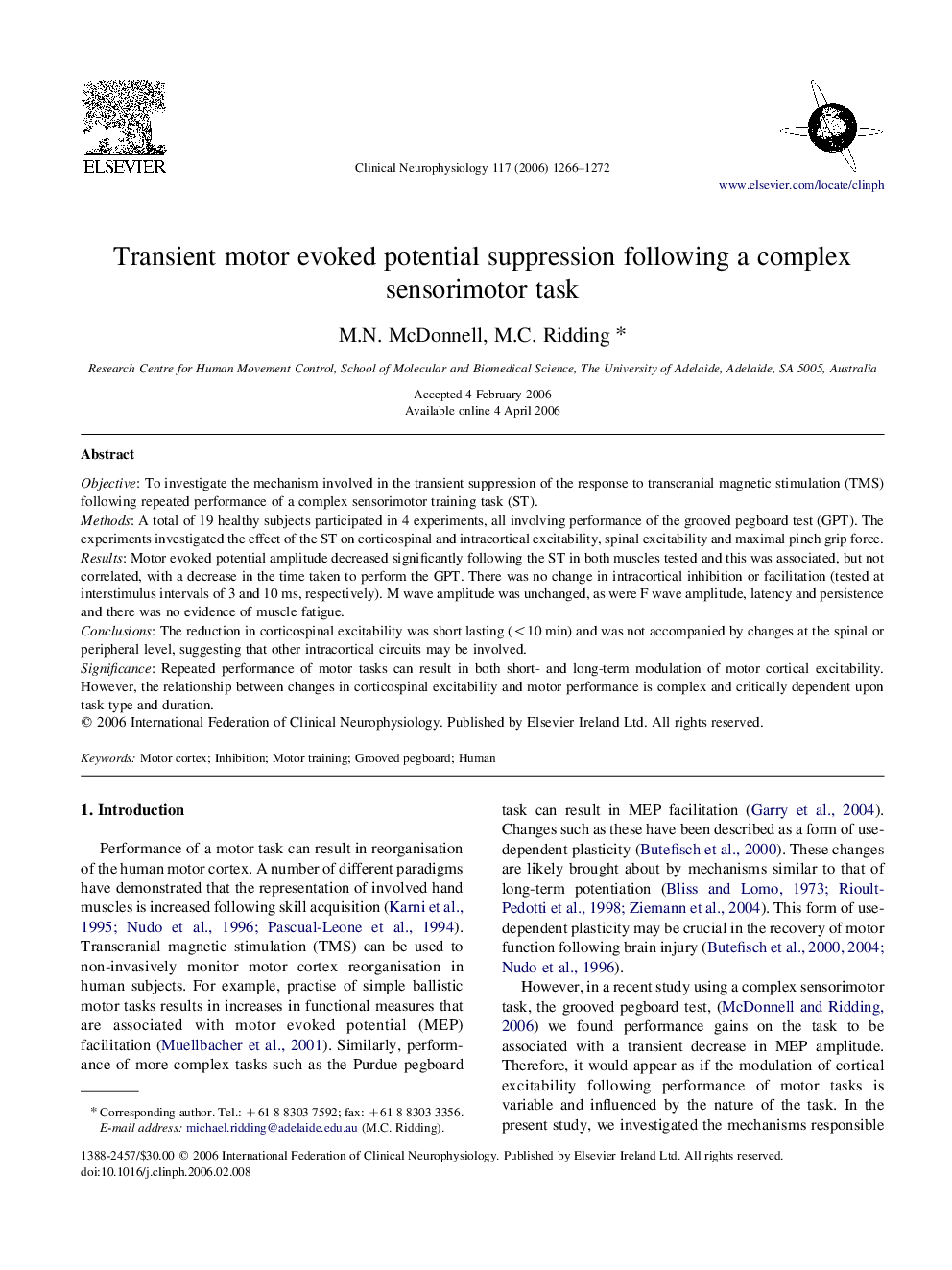| Article ID | Journal | Published Year | Pages | File Type |
|---|---|---|---|---|
| 3048735 | Clinical Neurophysiology | 2006 | 7 Pages |
ObjectiveTo investigate the mechanism involved in the transient suppression of the response to transcranial magnetic stimulation (TMS) following repeated performance of a complex sensorimotor training task (ST).MethodsA total of 19 healthy subjects participated in 4 experiments, all involving performance of the grooved pegboard test (GPT). The experiments investigated the effect of the ST on corticospinal and intracortical excitability, spinal excitability and maximal pinch grip force.ResultsMotor evoked potential amplitude decreased significantly following the ST in both muscles tested and this was associated, but not correlated, with a decrease in the time taken to perform the GPT. There was no change in intracortical inhibition or facilitation (tested at interstimulus intervals of 3 and 10 ms, respectively). M wave amplitude was unchanged, as were F wave amplitude, latency and persistence and there was no evidence of muscle fatigue.ConclusionsThe reduction in corticospinal excitability was short lasting (<10 min) and was not accompanied by changes at the spinal or peripheral level, suggesting that other intracortical circuits may be involved.SignificanceRepeated performance of motor tasks can result in both short- and long-term modulation of motor cortical excitability. However, the relationship between changes in corticospinal excitability and motor performance is complex and critically dependent upon task type and duration.
